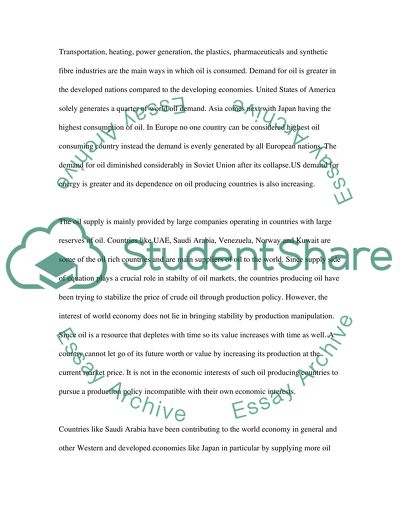Cite this document
(“Political Economy of Oil Essay Example | Topics and Well Written Essays - 2500 words”, n.d.)
Retrieved from https://studentshare.org/miscellaneous/1511173-political-economy-of-oil
Retrieved from https://studentshare.org/miscellaneous/1511173-political-economy-of-oil
(Political Economy of Oil Essay Example | Topics and Well Written Essays - 2500 Words)
https://studentshare.org/miscellaneous/1511173-political-economy-of-oil.
https://studentshare.org/miscellaneous/1511173-political-economy-of-oil.
“Political Economy of Oil Essay Example | Topics and Well Written Essays - 2500 Words”, n.d. https://studentshare.org/miscellaneous/1511173-political-economy-of-oil.


